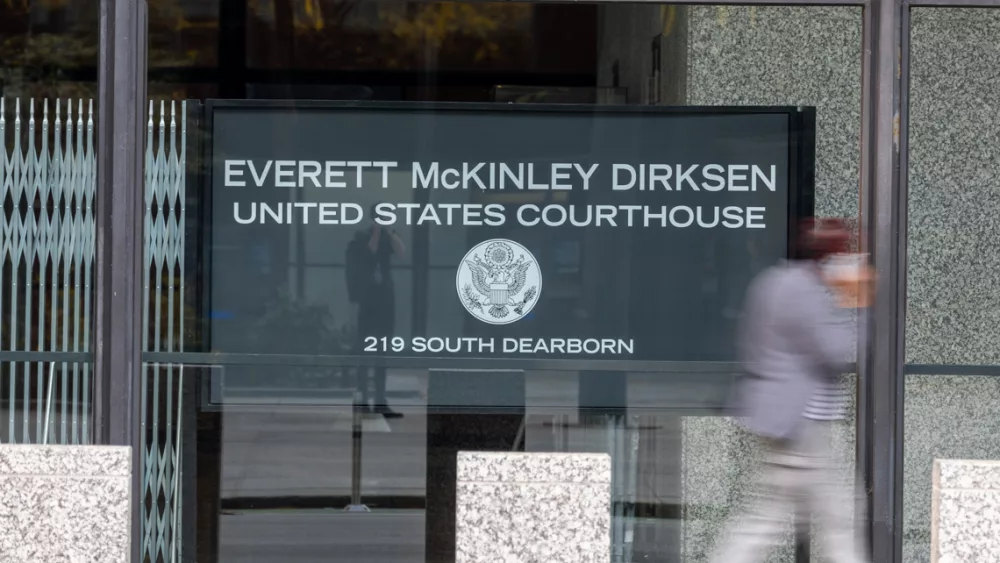Summary
Alderpeople come to blows over City's reimbursement grant model, aid for Better Life, Better Living & One in a Million Inc.
During the October 29 Committee of the Whole, the Springfield City Council was presented with a proposal to directly dispense $30,000 to Better Life, Better Living for Kidz and One in a Million Inc. , two longtime non-profit youth programs which needed the money in order to access a grant of $215,000; money which they had already been awarded by the City.
Although Better Life Better Living and One in a Million had been granted the funds by the City, rules for this form of grant limit that money to a reimbursement basis. The two recipients lacked the funds to even start on the projects for which they had applied.
Those nonprofits, which already carry out programs through volunteer support and sorely limited pools of local donor money, seek to utilize the funds to provide extracurricular activities and life skills to the low-income children of the City, hoping to reduce street violence by providing alternative activities and structure.
“When we signed up for this grant, we had to present a budget explaining what we’d be doing if we got this money,” explained Mbanna Kantako II, founder of Better Life Better Living. “Where it fell short is they said, ‘The only way you could use the money is if you got the money’ — that’s the whole reason we applied for the grant, is that we need the money. We were first told they would be able to possibly give us up to $8,000 up front. But then after we went back and signed a memorandum of understanding, they told us they weren’t able to give us nothing. Then they said that the only way that we could get it is through City Council. So that’s why we’re here.”
“The reason why I brought this forward was because I felt it was very important considering some of the conversations we’ve had surrounding youth gun violence, and youth violence in our communities,” explained Alderman Shawn Gregory of Ward 2. “This grant is three years in the making — we actually had to go in and ask for extension last year, and we almost lost it then. It’s about to be November, and it’s going to expire in July. And we haven’t done anything with that three million dollar grant for violence prevention, and that was the theory of it. We have not executed this portion, and I think it’s really, really important that we do that.”
The case of this grant is only the most recent in a string of similar predicaments brought before the City relating to its reimbursement requirements. A prophetically similar argument took place in March over CAP 1908, which at the time was caught waiting for federal money to close on acquiring its neighboring building for expansion, at a time where the Republican majority in the House of Representatives was threatening a government shutdown. When CAP 1908 turned to the City to fill the gap, multiple members of the Council hesitated to stray from the reimbursement model — even though it effectively would cost the organization more in loans and interest.
Ward 10 Alderman Ralph Hanauer, concerned with bypassing the reimbursement model, motioned to place the ordinance on the debate agenda for the next meeting. As was the case during the March proposal, he feared the potential precedent the move would establish:
“Are we changing the rules of this grant?” asked Hanauer. “I don’t wanna set a precedent that we’re doing this and next thing you know we’re a loan agency, when people know when they sign up for these grants that they’re reimbursable and that’s how they work.”
“Quite frankly I’m kind of baffled at some of the way we’ve been talking about this grant,” commented Charles Williams, Chairman of Better Life Better Living. “We’re talking about an enduring legacy of redlining; we’re talking about prime age employment gaps, concentrated poverty rates, extreme disparities in equity. This is stuff that you all are quite aware of, because it’s the date that was developed by this council… many of the neighborhoods that we aim to serve are feeling the repercussions of historical policies that have perpetuated cycles of poverty and inequity.”
In census tracts across the majority-Black neighborhoods of Springfield, explained Chairman Williams, 53% of residents lived below the poverty line. As Better Life Better Living and One in a Million Inc. both originate from these communities they therefore have significantly smaller pools of community resources from which to draw potential donation money. The reimbursement basis of the grant money, Charles Williams argued, created a major barrier for the two groups.
“We have never had access to such substantial funding before for the aforementioned history of redlining that I just highlighted. So the expectation that we must incur expenses upfront without immediate access to capital is not only unrealistic, but effectively sets us up for failure… it has been public knowledge that we have been awarded this grant. But what has not been public knowledge has been the stipulation that requires us to spend money before we can access money. So now people are saying that we’re stealing money, and this is not the case — we have not accessed a single dime of that money.
“In my mind, I know what a loan is and I don’t think that’s the proper way to look at this thing. This is an investment in your city. This is an investment in your wards. So how is it a loan?”
Other speakers were equally perturbed by Hanauer’s hypothetical.
“What we don’t understand as a non-profit, not a small business, is how grants have been approved but not accessible without cash on hand. We do not have cash,” said Carly Crawford.
“We submitted a budget, we submitted a plan to the police department — they approved it,” pointed out Michael Williams, President of One in a Million. “They sent that same program plan and budget to DCEO — they approved it. Just recently, this body approved it! So we’ve got the $215,000. What we’re asking is $30,000 of that up front, so that we can get to work saving these kids’ lives in our community.”
Speaking to Hanauer directly, Michael Williams asked, “What exactly are you going to debate next week? The money’s here. The money’s been approved. We’re gonna take that $30,000 and spend it exactly how our budget that we turned in to the police department. We can’t go out and start spending money on anything else; it won’t be approved.”
When asked by Alderwoman Jennifer Notariano of Ward 6, City Corporation Counsel Greg Moredock stated he would confer with the state government to confirm that the proposed solution would be acceptable; Moredock also explained the reason he designed the ordinance to draw from corporate funds for the $30,000 loan was to avoid expanding or altering the scope of the grant as provided. Alderwoman Notariano recalled a similar solution being employed for an emergency roof repair at Kidzeum on Adams Street.
“We’ve just been over this so many times in my short time here,” complained Notariano. “Whoever decided that this should be a reimbursement grant — that was a mistake. It just doesn’t make any sense to ask an undercapitalized group, a group that we know is on a shoestring budget, to come up with the funding to get their program rolling. These barriers that we’re throwing up, saying things like ‘We don’t want to set a precedent,’ or ‘We don’t want to open the floodgates’ — wanting to hold things back because of the way it might look… I just want everyone to realize that it is clear to everyone else what you’re doing when you say, ‘I want to make sure we’re not setting a precedent,’ ‘I want to make sure the City isn’t going to be out $30,000.’
“We know what you’re really saying,” warned Notariano, “So, just think before you speak.”
Hanauer took exception with the Alderwoman’s remarks.
“I’d love to give money to everybody but we can’t do it, because we’d lose money,” said Hanauer. “I’m sorry, but that was my point on this whole thing. Nothing’s going to happen until next week anyway, even if we did put it on consent.”
Then, raising his voice, Hanauer pointed towards Notariano. “Alderwoman, I believe you voted on this grant, maybe if you would read the grant before you voted on it you would know–”
Alderwoman Notariano began to speak back at this point, but the Ward 10 Alderman began yelling over her. As the two fought to speak over each other the audience joined in, and Lakeisha Purchase of Ward 5, who served as Chair for the meeting, brought the gavel down.
After Purchase threatened to begin removing attendees from the room, the shouting died down. Notariano then insisted, “[Hanauer] needs to address the Chair.”
The Chair concurred, and then allowed Hanauer to continue.
“Don’t sit up here and criticize and everything else when our responsibility is to watch the finances of this city, and protect the grants, and protect things,” said Hanauer. “You just have to do your homework, you read it, it says ‘reimbursable grant.’”
“Chair, you probably remember — other people probably remember — every time a reimbursement grant comes across my desk, I say something about it and say that it’s not appropriate, every time,” retorted Notariano. “There’s no reason to ask folks to have ‘skin in the game’ or whatever. They’ve been approved to spend the money by the police department and by the state. I really don’t know how we could go wrong here. The only thing that I want is for us to put this on consent so that these folks don’t have to sit here for however many hours and wait to say their piece… if we could put this on consent, you would be doing them a huge courtesy.”
Frustrated, Alderman Chuck Redpath of Ward 1 spoke up: “I don’t know why we can’t put this on consent with the contingency that [Moredock] has to look through it. Even if it’s on consent, if he comes back to us and says, ‘We need to pull this off consent,’ we can’t do it. Why don’t we put it on consent contingent on the Corporation Counsel reviewing it?
“We know that it’s probably going to go through. And the bottom line is, yeah, this is a big deal. We all know that. There’s not one person up here that doesn’t understand how important this is.”
Hanauer finally conceded to Redpath’s suggestion, changing his motion to consent, with Redpath qualifying, “Contingent on Corporation Counsel’s review.”
Corporation Counsel Moredock at this stage reiterated that he would review the topic and then inform the Council as soon as possible.
As of now it appears the funding measure for Better Life, Better Living for Kidz and One in a Million Inc. remains set to pass as part of the consent agenda for the next meeting of City Council.





